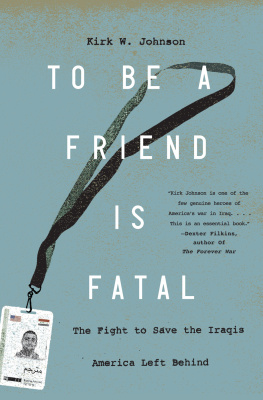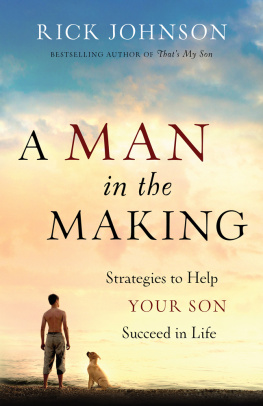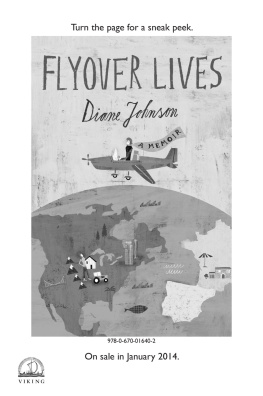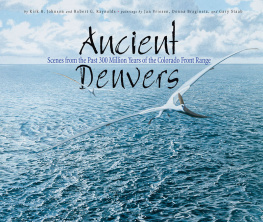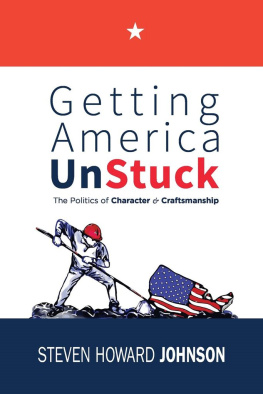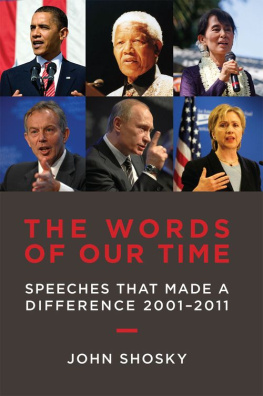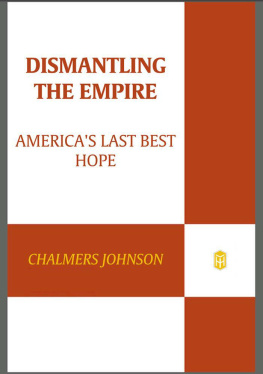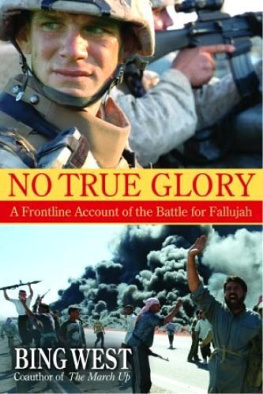Thank you for downloading this Scribner eBook.
Join our mailing list and get updates on new releases, deals, bonus content and other great books from Scribner and Simon & Schuster.
C LICK H ERE T O S IGN U P
or visit us online to sign up at
eBookNews.SimonandSchuster.com
We hope you enjoyed reading this Scribner eBook.
Join our mailing list and get updates on new releases, deals, bonus content and other great books from Scribner and Simon & Schuster.
C LICK H ERE T O S IGN U P
or visit us online to sign up at
eBookNews.SimonandSchuster.com

SCRIBNER
A Division of Simon & Schuster, Inc.
1230 Avenue of the Americas
New York, NY 10020
www.SimonandSchuster.com
Copyright 2013 by Kirk W. Johnson
All rights reserved, including the right to reproduce this book or portions thereof in any form whatsoever. For information, address Scribner Subsidiary Rights Department, 1230 Avenue of the Americas, New York, NY 10020.
First Scribner hardcover edition September 2013
SCRIBNER and design are registered trademarks of The Gale Group, Inc., used under license by Simon & Schuster, Inc., the publisher of this work.
The Simon & Schuster Speakers Bureau can bring authors to your live event. For more information or to book an event, contact the Simon & Schuster Speakers Bureau at 1-866-248-3049 or visit our website at www.simonspeakers.com.
Cover Design by Oliver Munday
Library of Congress Cataloging-in-Publication Data is available.
ISBN 978-1-4767-1048-8
ISBN 978-1-4767-1050-1 (ebook)
When men fight, there is a continuum of war, rubble, and human flight. Sometimes the flight comes before the war. Sometimes the war persists even after all is made rubble. Sometimes the flight lasts longer than both the war and its rubble. But these immutable three come together, reliable as gravity.
I made no war. I went to Iraq to turn rubble back into schools and power plants, and failed.
But the third element is flight. I did help some flee. This is their story, and this book is dedicated to them.
Contents

Prologue
December 29, 2005
T wo fingers pressed firmly against my forehead. The hand they belonged to wore a pale blue surgical glove the color of oceans on maps, except for the spatter of wine-dark blood. I was lying on a table, writhing but unable to free myself. Other blue gloves pressed against my chest, waist, legs, ankles, arms. My eyes stung. I thrashed again and freed one arm. I heard shouting. More hands appeared, forcing down my bucking knees.
Mother fucker , how much longer?!
A needle entered my blurred frame of vision and burrowed itself into a laceration running between my eyes. My forehead numbed for a moment before the anesthetic seeped back out with the blood, useless.
Viente por ciento! Loudly. Slowly.
My face was splayed open, and my lunatic flesh needed tying down. A gash ran from my right eyebrow into my left eyebrow and stopped above the eyelid. A piece of my nose was missing from its bridge, leaving behind a divot. My front teeth, dangling from a shattered jaw, had trifurcated my upper lip. Drained of blood, it looked like a worm baking on the sidewalk. My chin appeared as though it were falling off.
My brain was a captured wasp, thudding furiously against the glass walls of a jar, striking everywhere and nowhere. A suturing needle punctured through the cliff of flesh along my brow, ran a thread across the seeping ravine, before reversing course and knotting off where it started. A millimeter to the right, and repeat. After each suture, the surgeon pressed his thumb against the slowly forming rail of stitches, nudging the tracks in line, refashioning the putty of my face.
They ignored my English cries for painkillers, so I pleaded in Arabic, Dawa, biddy dawa !
Disconnected thoughts erupted with maniacal force: Twenty percent... teeth missing... Sheikh Kamal... blue gloves... beach... Fallujah... Mom... jaw... painkillers... Who are these people?... twenty percent.
Adrenaline coursed through each limb and muscle until my mind, exhausted, finally relaxed. My legs followed; the flailing subsided. I no longer felt the slow-moving needle, my broken wrists, my crushed nose, my jaw, my bleeding toes. The lava stilled and cooled.
The rubbery hands eased cautiously from my body. The room went quiet, save for an occasional instruction to an attending nurse and the sound of suturing needles clanking upon a steel tray.
Ninety minutes later, my face was stitched shut.
I was wheeled down the hallway on a gurney, bright ceiling lamps sweeping swiftly into my field of vision like rising and setting suns, one after another, lingering eclipse-like when I closed my eyes. The din of the waiting room hushed as orderlies pushed me through. In the operating room, the next team of doctors and assistants was preparing its tools. My jaw would need wiring, my arms would need fiberglass, my face would need masking. At last, they dosed me with general anesthesia, and I fell into a deep sleep.
October 13, 2006
The war was in its fourth autumn when Yaghdans future was swallowed up.
Late on a Friday afternoon, Yaghdan checked the clock on his computer screen and sighed. A few cubicles away, an American grazed on a microwaved bag of popcorn, and the scent of butter and salt tugged at Yaghdans hunger. The Muslim holy month of Ramadan was in its final week, and the required fast, made brutal by the long hours and his proximity to nonfasting Americans, was almost over. Yaghdan consoled himself with the thought that his wife, Haifa, was at that moment preparing an iftar feast far more sumptuous than American junk food.
The walkie-talkie on his desk squelched, and a young male American voice warbled through the handset, Dispatch, we need a pickup from the white house, please!
A few seconds passed, and an Iraqi driver in the motor pool replied flatly, Okay, ten minutes. The driver had probably only just returned from dropping off the American, Yaghdan thought. White house was their radio code word for the liquor store in the Green Zone. Through the thin blue walls of his cubicle in the massive bomb- and mortar-proof office building of the US Agency for International Development, Yaghdan sometimes overheard stories about the Americans parties. He had seen bottles strewn in the yards of the mortar-proof houses in the compound and recognized how a hangover sat on a face. He had no chance of seeing a party for himself, since Iraqis working for USAID were not allowed to stay overnight in the Green Zone.
At five oclock, Yaghdan powered down his computer. He nodded at the Nepalese security guards as he exited through the buildings doors, reinforced to repel bullets and improvised explosive devices, or IEDs. He climbed into the Chevy Suburban idling out front, alongside other Iraqis who worked for the agency. The van snaked past demolished palaces and the sixteen-foot blast walls of the secretive compounds clotting the Green Zone. Yaghdans colleagues quietly removed their USAID badges and stuffed them into socks, brassieres, hidden pockets. His went into his shoe.
This daily ritual made Yaghdan nervous, but nervousness had become a function as natural as breathing or eating. It had a use, keeping them vigilant. The women wrapped hijabs around their hair and donned sunglasses. The men removed their ties and donned shemaghs .

